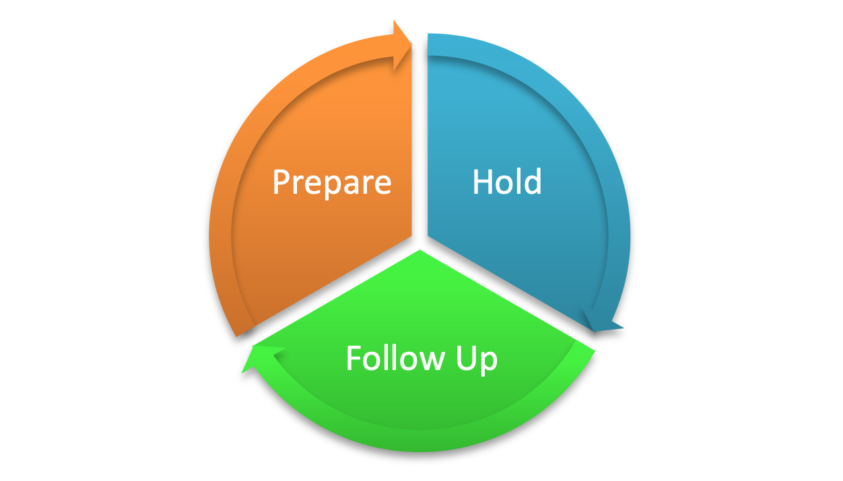Career Conversation Guide for Managers
Why hold career development conversations?
Talking to employees about career aspirations is one of the most meaningful and results-driving activities you perform as a leader. Development-focused conversations inspire reflection, illuminate possibilities, foster commitment, and generate employee-owned actions. These actions help employees grow and develop while contributing to organizational goals.
Career conversation guide for managers
When do you hold career development conversations?
The annual performance review is a great time to talk about the future, but it shouldn’t be the only time. A regular cadence of formal and informal career-focused conversations should take place throughout the year to identify goals, develop action plans, and discuss progress.
How to facilitate career conversations?
No two career conversations are the same. A great career conversation takes preparation BEFORE, great facilitation DURING, and follow-up AFTER.

Prepare for the conversation
Take time to plan. There’s no better way to have a great career conversation than to plan for it in advance. Think about what you know about your employee (strengths, opportunities, interests).
- In what ways does this employee bring value to the organization?
- What is the employee enthusiastic about?
- What does the employee do best?
- What are the areas for improvement?
- What potential development opportunities or projects exist that you may consider for this employee?
Hold the conversation
Career conversations can go in many directions. If the employee is not sure about what they want, you can help them figure it out. If they know where they’re headed, your conversation can focus more on what actions they can take to get there. (In some cases, employees are happy where they are and may not be interested in changing roles, but the conversation could focus on opportunities for additional learning and new tasks, cross-training, or projects to keep them motivated.)
Set the stage
Communicate the purpose of the discussion and ask your employee what short (one to two years) and long-term career goals they have.
Discuss Career Aspirations
If the career interests aren’t clear, you might say: “Let’s explore what interests you in your career. You don’t need to have the answers. I’m here to listen and help you think through what you find most interesting and why.”
- What are you most passionate about?
- What are your strengths?
- What do you want to improve? Why?
- Which new skills do you want to learn? Why?
- What do you enjoy doing that you’d like to do more of?
- Which recent assignments have been more satisfying or interesting? Which haven’t?
If the career interests are clear, you might say: “It sounds like you know what interests you, and your career goals are clear. Let’s focus on how we can work together to help you get there.”
- Where do you see yourself in one year? Three years?
- Which roles, departments, or opportunities are you most interested in? Why?
- What does it take to be successful in the role you’re interested in?
- What are your next steps to get there?
- What support do you need from me?
Create Development Goals & Action Plan
Use the Career Development Plan (CDP) template to identify 1-2 development goals and associated development activities within the 70:20:10 framework.
- 70% on-the-job learning (experience), for example:
- Special assignments
- Job rotations
- New responsibilities
- 20% learning from others (exposure), for example:
- Find a mentor o Networking
- Shadowing
- 10% formal learning (education)
ASK:
- What steps could you take?
- What experiences would help you learn more?
- From whom might you learn new skills and acquire knowledge?
- What coaching or mentoring opportunities will help you achieve your goals?
- Which development needs can be addressed by reading, or attending courses, seminars and conferences?
- What ideas do you have?
- How can I help?
Development goals should be specific, measurable, actionable, relevant, and timely (SMART). They should include action steps, a timeline, and criteria for success.
Follow up
Build in time to have ongoing informal career conversations at least quarterly. It’s helpful to set up time separate from your regular one-on-one meetings but is not required. Continue to follow up on action plan (CDP) progress. Consider asking for a professional development goal as part of the annual performance review goal planning section.
Manager tip: Model career development by doing. Create your own Career Development Plan.
